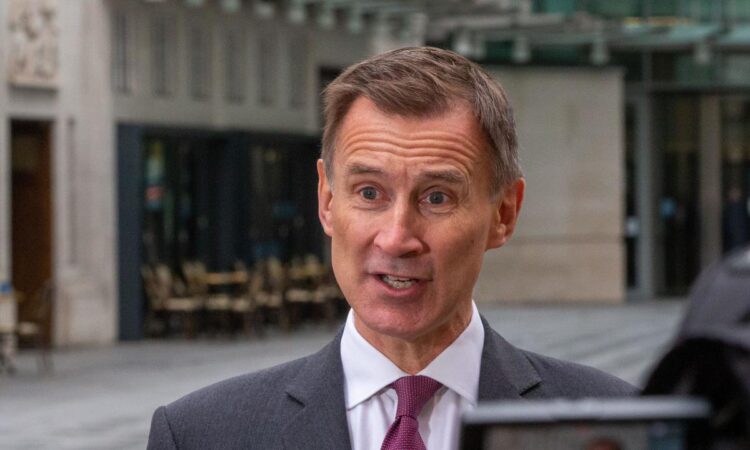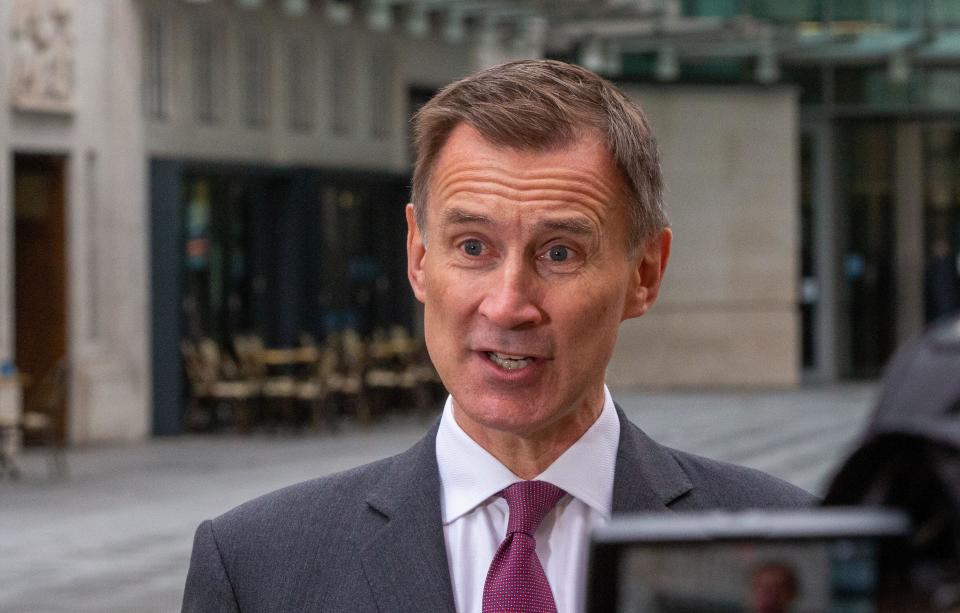

The UK government faces a cost of more than £60bn after it reportedly delayed plans to bring forward a rise in the state pension age amid falling life expectancy in the UK.
Delaying the increase in the state pension age would cost the Treasury between £8bn and £9bn for each year that it is delayed, according to the Institute for Fiscal Studies (IFS).
The state pension age, which is currently 66, was due to rise to 68 after 2044 but reports earlier this year suggested ministers had planned to bring the increase forward to between 2037 and 2039.
However, the Financial Times reported ministers have decided to delay making a decision until after the next general election due to fears of a revolt by middle-aged voters.
Read more: Budget 2023: Hunt scraps life-time pension allowance as he says UK will avoid recession
This means a seven-year delay would cost the government more than £50bn over the seven years, and more likely more than £60bn, the think-tank said.
Jonathan Cribb, an associate director of the IFS, said: “Men and women born more recently are expected to live longer than their predecessors. That in itself is a strong rationale for a gradually increasing state pension age. On the other hand, higher mortality rates in recent years mean that any given generation is expected to live less long now than was expected at the time of the last pension age review in 2016.
“This provides a justification for delaying the rise in the state pension age from 67 to 68 that was previously planned for the late 2030s. But to do so would cost money. There are significant long-term fiscal challenges coming from the ageing population and delaying the rise in the state pension age will cost the Exchequer around £8-9bn for each year of delay.”
Older workers in their 50s are a core bloc of traditional Conservative voters and bringing forward changes in the state pension age risks frustrating this group.
Read more: UK mortgages: Millions to face loan repayments beyond retirement age
Delaying the increase in the state pension age from 67 to 68, would mean around one in 10 people would retire at age 67 rather than 68 between 2037 and 2044.
Also, income poverty rates among 65 year olds more than doubled, rising from 10% to 24%, when the state pension age was raised from 65 to 66.
In France, workers have flooded the streets in protest against president Emmanuel Macron’s move to raise the retirement age from 62 to 64.
Thousands have marched in the streets in recent weeks against the move, while public transport workers, teachers and garbage collectors have walked out en masse to show their disapproval.
Watch: Is a UK state pension enough to survive on in retirement?
Download the Yahoo Finance app, available for Apple and Android.






